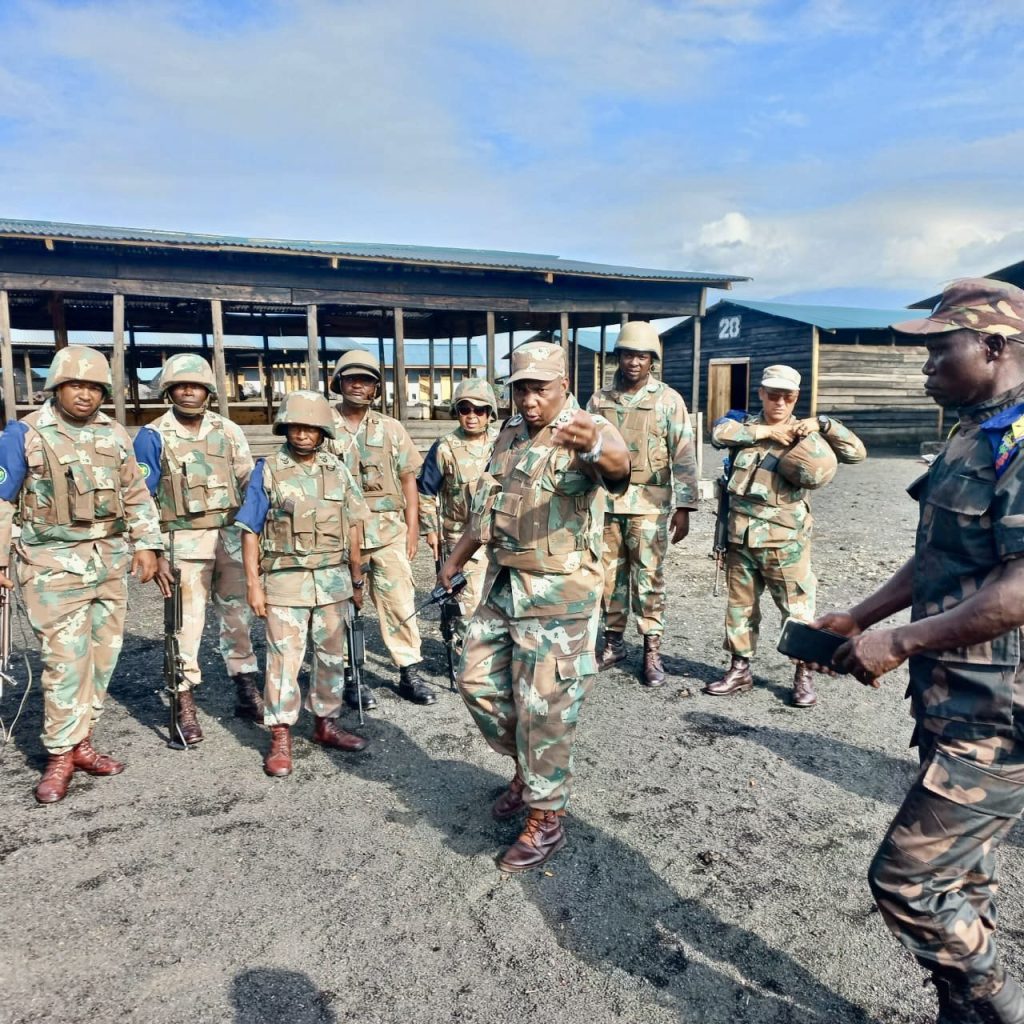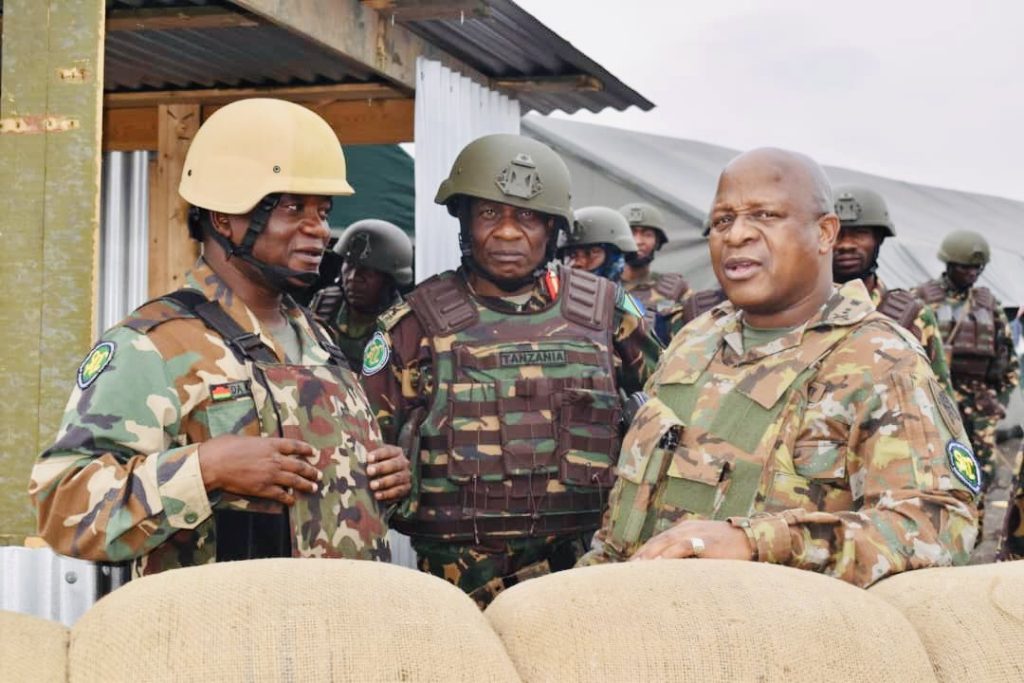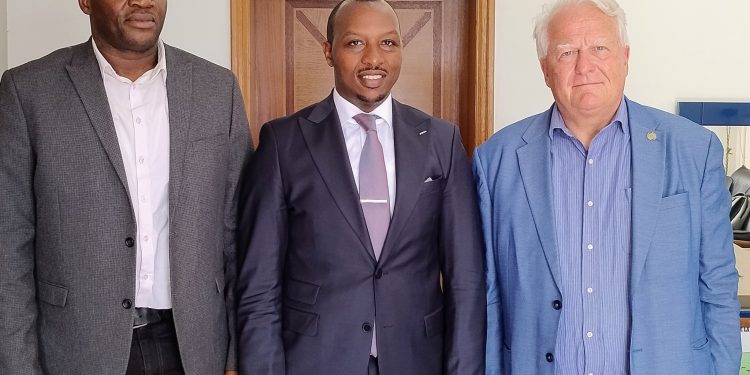Do you know why AFC/M23 does not permanently expel SADC and Monusco? This is a question that many, especially journalists, have been pondering for some time, but analysts and those closely following the war in Western Congo have addressed it thoroughly.
As days go by, the situation in Western Congo becomes clearer, indicating that the question cannot be answered without first explaining the current state of the battlefield, the diplomatic capabilities that AFC/M23 is employing, and what lies behind the roles of SADC, Monusco, and the Congolese army.
Many analysts, except for those opposing the AFC/M23, assert that the conflict in Eastern Congo has changed its dynamics.
It is also known that the AFC/M23 has the capability to repel any attacks directed against it. This is not solely due to the fighters’ dedication, but is closely related to advanced intelligence methods, collaboration with the local population, and strategic choices regarding where, how, and when to engage in combat.
On April 11, 2025, SADC, in collaboration with Wazalendo, the Burundian army in Congo, and FDLR, attempted to attack Goma again to reclaim the city, but they were thwarted by the experience that AFC/M23 has gained.

However, although AFC/M23 has the ability to permanently drive out SADC forces and their allies, namely the Monusco troops, there are valid reasons why things may not unfold as many wish or think. The primary reason is diplomacy— a powerful weapon in changing history more than that which comes from guns.
A man who once served as Germany’s ambassador to several African countries, including those in the region where DRC is located, visited AFC/M23.
He is known for having strong friends all over the world and is experienced in regional issues; he indicated that AFC/M23 is performing well in advocating for peace in Eastern Congo.
He highly praised their openness to those wishing to see the situation for themselves rather than continuously accepting false information coming from Kinshasa under President Felix Tshisekedi’s administration.
This statement by AFC/M23 shows that it has put effort into seeking genuine diplomacy so that the world can see the current situation. It states that the behavior displayed by AFC/M23 is suitable for the country or a group that wishes to build a future that does not solely rely on war.
The fact that AFC/M23 has not aggressively attacked the SADC forces to expel them permanently helps SADC maintain a positive image internationally and in the countries where its soldiers come from, such as South Africa and others.
Additionally, AFC/M23 is aware that poorly expelling them could lead to another major war with consequences for the people of South Kivu and North Kivu, as well as for other populations in Central Africa.
This is also related to the upcoming elections in South Africa, where opposition parties are prepared to use SADC’s defeat as a weapon to garner votes.
Admitting that AFC/M23 has defeated them could destabilize the current government and affect political security in that country.
And although MONUSCO claims to be representatives of the UN, reports indicate that within its ranks are FARDC soldiers hiding alongside those from SADC.
AFC/M23 is aware of this, but through sophisticated intelligence, it has built trust among foreigners that it does not seek pointless conflict but rather aims to restore peace and development in the regions it controls.

As of now, the Monusco and SADC facilities are operating at a 99% level of control by the AFC/M23 investigation. Anyone attempting to leave these facilities without permission is shot immediately. All of this is carried out under strict secrecy of intelligence rather than using military force.
It is said that AFC/M23 has invested its resources in technology rather than solely allocating them to combat.
Surveillance equipment, methods for monitoring military activities using technology, and rapid response have allowed them to consistently outpace SADC and FARDC.
AFC/M23 has realized that in this era, weapons are not just bullets; rather, rhetoric, collaboration, and international law are also powerful weapons.
This is what has caused SADC and its affiliates’ plan to seize Goma to falter.
The reason AFC/M23 does not completely expel SADC and Monusco is not due to a lack of capability, but rather because it is employing the skill and prudence of diplomacy in striving for lasting security.
What AFC/M23 is doing reflects a shift in the mindset of military leadership in Kivu—where the power of bullets no longer surpasses political capability, technological collaboration, and the ability to manage international law.
This is what AFC/M23 has chosen to employ, and it shows that they are navigating this well.







